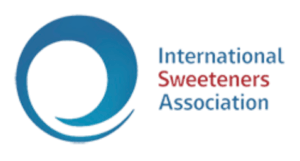Abstract
OBJECTIVE: Sweetened beverage intake is associated with increased risk of type 2 diabetes, but its association with autoimmune diabetes is unclear. We aimed to investigate sweetened beverage intake and risk of latent autoimmune diabetes in adults (LADA); autoimmune diabetes with features of type 2 diabetes.
DESIGN/METHODS: Data from a Swedish population-based study was used, including incident cases of LADA (n = 357) and type 2 diabetes (n = 1136) and randomly selected controls (n = 1371). Diabetes classification was based on onset age (?35), glutamic acid decarboxylase autoantibodies (GADA) and C-peptide. Sweetened beverage intake information was derived from a validated food frequency questionnaire. ORs adjusted for age, sex, family history of diabetes, education, lifestyle, diet, energy intake and BMI were estimated using logistic regression.
RESULTS: Daily intake of >2 servings of sweetened beverages (consumed by 6% of participants) was associated with increased risk of LADA (OR: 1.99, 95% CI: 1.11-3.56), and for each 200 mL daily serving, OR was 1.15 (95% CI: 1.02-1.29). Findings were similar for sugar-sweetened (OR: 1.18, 95% CI: 1.00-1.39) and artificially sweetened beverages (OR: 1.12, 95% CI: 0.95-1.32). Similarly, each daily serving increment in total sweetened beverage conferred 20% higher type 2 diabetes risk (95% CI: 1.07-1.34). In type 2 diabetes patients, high consumers displayed higher HOMA-IR levels (4.5 vs 3.5, P = 0.0002), but lower HOMA-B levels (55 vs 70, P = 0.0378) than non-consumers. Similar tendencies were seen in LADA.
CONCLUSIONS: High intake of sweetened beverages was associated with increased risk of LADA. The observed relationship resembled that with type 2 diabetes, suggesting common pathways possibly involving insulin resistance.
Summary
Based on a very small population number, in particular, only 6% of the 357 people with LADA type diabetes (overall 21 people), the study by Löfvenborg et al suggests that daily intake of more than two sweetened beverages is associated with increased risk of LADA and, similarly, with type 2 diabetes.
Furthermore, by its nature, an observational study cannot establish a causal relationship between diet drink consumption and the risk of developing diabetes. Indeed, the authors acknowledge the study’s main limitation, which is its retrospective design that may lead to recall bias. The fact that the patients were asked to recall their consumption of sweetened beverages before their diagnosis, whereas the controls were asked to recall their intake during the year directly before participation date, may introduce bias. As with all studies of observational nature, the possibility that the results are influenced by residual and unmeasured confounding factors or under-reporting cannot be excluded.
Furthermore, what is rather surprising is the study outcomes regarding people with LADA type diabetes, also called late onset type 1 diabetes, meaning that it is type 1 diabetes that arises at some point in adult life instead of at a younger age. LADA is an autoimmune disorder and there is no evidence supporting that specific foods or dietary behaviours may cause autoimmune disorders. Therefore, such observations have very little value and are questionable. For more information please read the ISA comments by clicking here.


